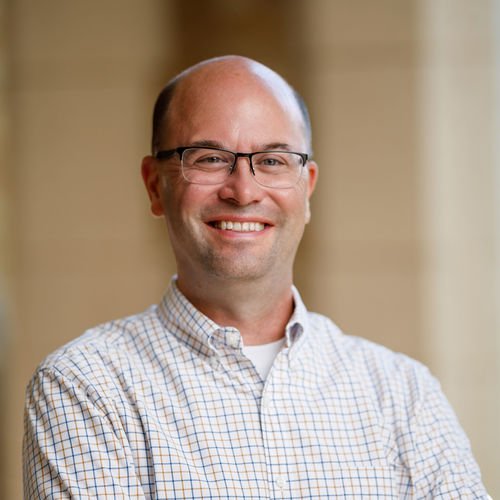This article was originally published by The Wall Street Journal on June 23, 2022 and appeared in the print edition the following day.
***

The Supreme Court on Tuesday affirmed that the state of Maine may not selectively discriminate against religious schools or the families who choose to send their children to them. Carson v. Makin is long overdue but still a welcome win for educational choice and pluralism.
Maine operates a tuition-assistance program for parents who live in school districts without their own secondary schools. The parents choose a school, public or private, and the state helps them pay to attend. A range of schools are eligible, including ones outside Maine, and many offer elite programming and plush amenities that differ dramatically from public offerings. Yet the state refuses support to families that choose a “sectarian” school—one that “promotes the faith or belief system with which it is associated” or “presents the material taught through the lens of this faith.”
A six-justice majority held that this violates the Constitution’s protection of the free exercise of religion. The First Amendment, Chief Justice John Roberts wrote, prohibits denying otherwise available public benefits to religious individuals and institutions. He insisted that Maine’s desire to separate church and state “more fiercely” than the Constitution requires is no excuse for this denial.
Twenty years ago, in an opinion by Chief Justice William Rehnquist, the court abandoned its historically unfounded view that programs that provide evenhanded educational assistance to students attending faith-based schools somehow “establish” religion. Contrary to widespread but misguided sloganeering that religion-neutral school-choice programs erase the distinction between church and state, the Court held in Zelman v. Simmons-Harris that they promote education.
This ruling sparked education-reform efforts across the country, but it was insufficient as some states continued to enforce their own rigid rules excluding religious schools from funding programs. But three decisions by Chief Justice Roberts finished the job.
In Trinity Lutheran v. Comer (2017), Espinoza v. Montana Department of Revenue (2020) and now Carson, the justices made clear that the Constitution neither requires nor permits discrimination simply on the basis of religion in education funding. Cooperation between governments and religious schools doesn’t establish religion, and antireligious discrimination is inconsistent with the guarantee of free exercise.
The justices rejected the idea that a state’s desire to marginalize religious education in ways the Constitution doesn’t require is a sufficiently “compelling state interest” to justify denying benefits to parents who choose religious schools. They also were unmoved by the argument that exclusions targeting “sectarian” schools and religious “uses” are less legally offensive than rules denying benefits on the basis of religious “status.” As the chief justice emphasized, “educating young people in their faith, inculcating its teachings, and training them to live their faith are responsibilities that lie at the very core of the mission of a private religious school.” Efforts by state regulators to comb through a school’s practices, materials and mission to identify the elusive point at which the school becomes too religious entangle church and state in ways that the no-establishment rule is designed to prohibit.
Justice Stephen Breyer returned in dissent to a regular theme. He worries that “with greater religious diversity comes greater risk of religiously based strife, conflict, and social division.” He believes courts should interpret the First Amendment to avoid, manage and tamp down such unpleasantness. Yet it is not the role of unelected judges to evaluate policy choices based on their own fallible predictions of division and disagreement. A policy’s contentiousness is irrelevant to its constitutionality. Similarly, a state’s unease about the potential for divisiveness doesn’t excuse discrimination that the Free Exercise Clause prohibits.
In a separate dissent, Justice Sonia Sotomayor, like many commentators over the years, opens with a tired warning that the court is dismantling “the wall of separation between church and state that the Founders fought to build.” Masonic metaphors notwithstanding, the Founders and those who followed were familiar with various forms of education-related cooperation between religious and governmental bodies and understood that such cooperation is entirely consistent with a healthy secular politics. The Constitution distinguishes between religious and political authority. It differentiates between church and state, and prohibits official interference with religious affairs, to protect religious freedom, not to license antireligious discrimination.
More than 25 years ago, school-choice advocates first challenged, unsuccessfully, Maine’s exclusionary tuition program. Tuesday’s vindication was a long time coming, and the faithful and nonbelievers alike can appreciate the benefits for educational diversity.
Richard Garnett is a professor of law at the University of Notre Dame and an associated scholar with the Religious Freedom Institute.
THE RFI BLOG

Does Southeast Asia Lead the World in Human Flourishing?

RFI Leads Training Session on Religious Freedom Law and Policy for U.S. Army War College

Oral Argument in Charter School Case Highlights Unconstitutional Motives Behind OK Attorney General’s Establishment Clause Claim

Largest Longitudinal Study of Human Flourishing Ever Shows Religion’s Importance

Keys To Human Flourishing: Faith And Relationships Outweigh Wealth
CORNERSTONE FORUM

Reaffirming Religious Freedom: Bridging U.S. Advocacy and Iraq’s Constitutional Framework

Political Polarization, Same-Sex Marriage and Religious Liberty

Bridging the Gap Between International Efforts and Local Realities: Advancing Religious Freedom in the MENA Region

Challenges to Religious Freedom in Iraq and the Critical Need for Action

